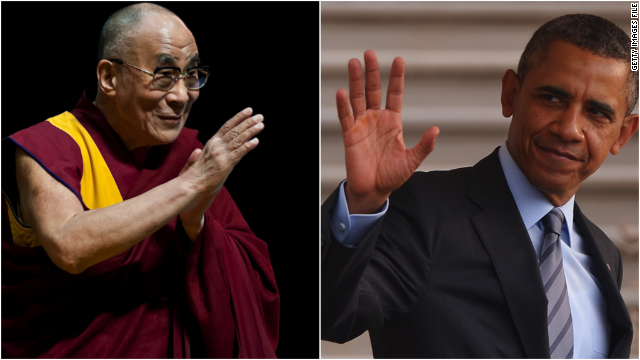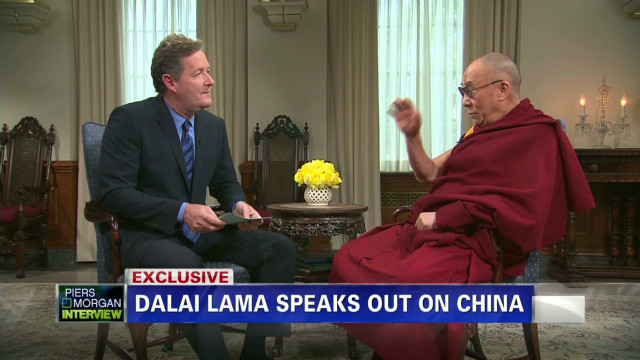Story highlights
- President reiterates "strong support" for preservation of Tibet's traditions
- But the United States does not support Tibetan independence
- Beijing says that by holding it, Washington will " severely impair China-U.S. relations"
- China accuses the Dalai Lama of being a separatist who foments unrest in Tibet
President Barack Obama met on Friday with the Dalai Lama, the Tibetan spiritual leader, despite China's appeal not to do so.
The White House said in a statement that Obama "reiterated his strong support for the preservation of Tibet's unique religious, cultural, and linguistic traditions and the protection of human rights for Tibetans" in China.
China urged Obama to call off the meeting at the White House.
"By arranging a meeting between the President and the Dalai Lama, the U.S. side will grossly interfere in the internal affairs of China, seriously violate norms governing international relations and severely impair China-U.S. relations," Chinese Foreign Ministry Spokeswoman Hua Chunying said in a statement.
The two have met previously
Obama has met with the Dalai Lama twice before, in February 2010 and July 2011. China responded to those meetings with similarly angry comments.
Beijing accuses the Dalai Lama of being a separatist who foments unrest in Tibet, a region it claims has been part of China since "ancient times."
The Dalai Lama, who fled to India in 1959 after a failed uprising, has long denied China's assertion that he's seeking Tibetan independence. He says he wants only enough autonomy to protect its traditional Buddhist culture.
The Obama administration says it supports the Dalai Lama's "Middle Way" approach to the political tensions over protests for Tibetan independence.
The White House said Obama stressed that he encourages "direct dialogue to resolve long-standing differences and that a dialogue that produces results would be positive for China and Tibetans."
Obama reiterated the U.S. position that Tibet "is part of" China and that the United States does not support Tibet independence.
The Dalai Lama stated that he is not seeking independence for Tibet and hopes that dialogue between his representatives and the Chinese government will resume.
Concerns over human rights
Over the past five years, at least 125 Tibetans have set themselves on fire, most of them fatally, to protest Chinese rule, according to Tibetan advocacy groups.
Beijing has taken a tough line on Tibetan self-immolators, their associates and other forms of protest. Tibetans have been convicted of murder in Chinese courts for "inciting" people to set themselves on fire.
The frequency of self-immolations declined during 2013, according to the London-based advocacy group Free Tibet.
China rejects accusations of oppression, saying that under its rule, living standards have greatly improved for the Tibetan people.
Beijing "lodged solemn representations" with the United States before Friday's meeting, saying "Tibet-related affairs fall entirely within the internal affairs of China which allow no foreign interference," Hua of the Chinese foreign ministry said.
A meeting between British Prime Minister David Cameron and the Dalai Lama last year cast a chill over relations between London and Beijing, delaying a visit to China by Cameron.







